Do you often criticize your work? Do you have a skill or ability that you are passionate about but find yourself avoiding it or dreading it because of self doubt? Do you think “I’ll never be good enough to share this with anyone. It’ll never be perfect so why try…”?
If this sounds like you then read on because you’re not alone. You simply have a very strong and possibly misunderstood inner critic.
The Inner Critic
The inner critic. The voice in my head that was originally instilled by childhood programming from a parent and society, that I very efficiently adopted as my own voice to self manage so that I could avoid being criticized and ridiculed or embarrassed by the outside world. Does this sound like you?
Like most coping strategies, this works well for survival, but when it comes to thriving it just works against us. I’ve had a toxic and admittedly abusive relationship with myself via the inner critic. This applies to practically all areas of my life but today I want to talk about artistry and how the inner critic prevents us from letting our artistic abilities flow. Negative self talk in regards to our creativity at best steals our joy and at worst can completely block our artistic expression.
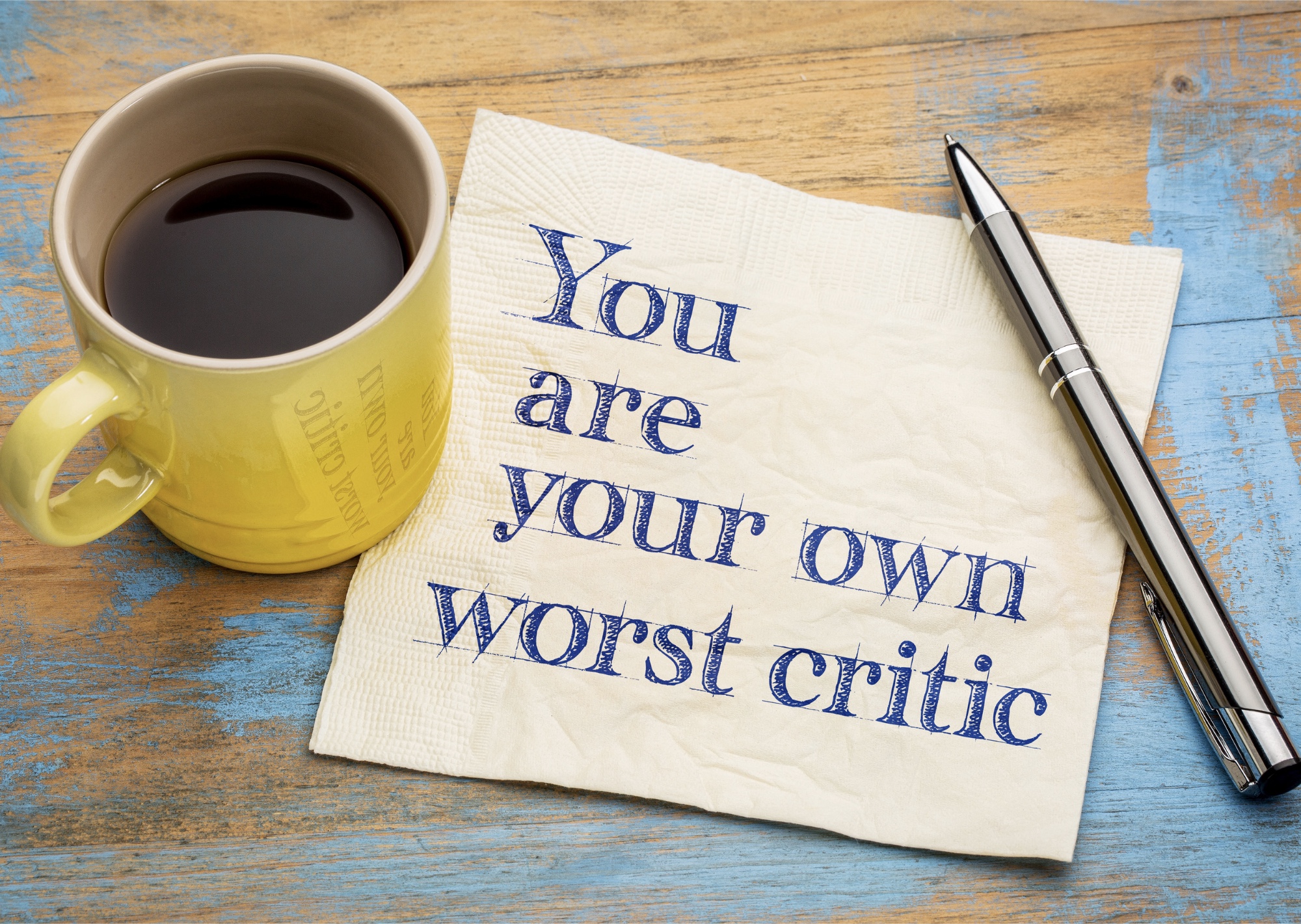
I’m an artist at the very core.
Since I was very young I’ve enjoyed goofing off and performing for an audience. From dance to cheer to high school musicals and jazz band, I’ve just always had a passion for the arts. My path took me down the road of nursing (that’s a story for another time) and my profession has served me well and allowed me to help a lot of people. But I had put my artistry on the back burner and was really missing out on a part of myself that brings me so much joy. Once I finally began investing in myself and nurturing my inner artist with lessons and classes and practice, I rediscovered my passion. Thus continues my journey as an artist.
Next I’ll share with you how your artistic journey is effected by both the inner critic and self love.

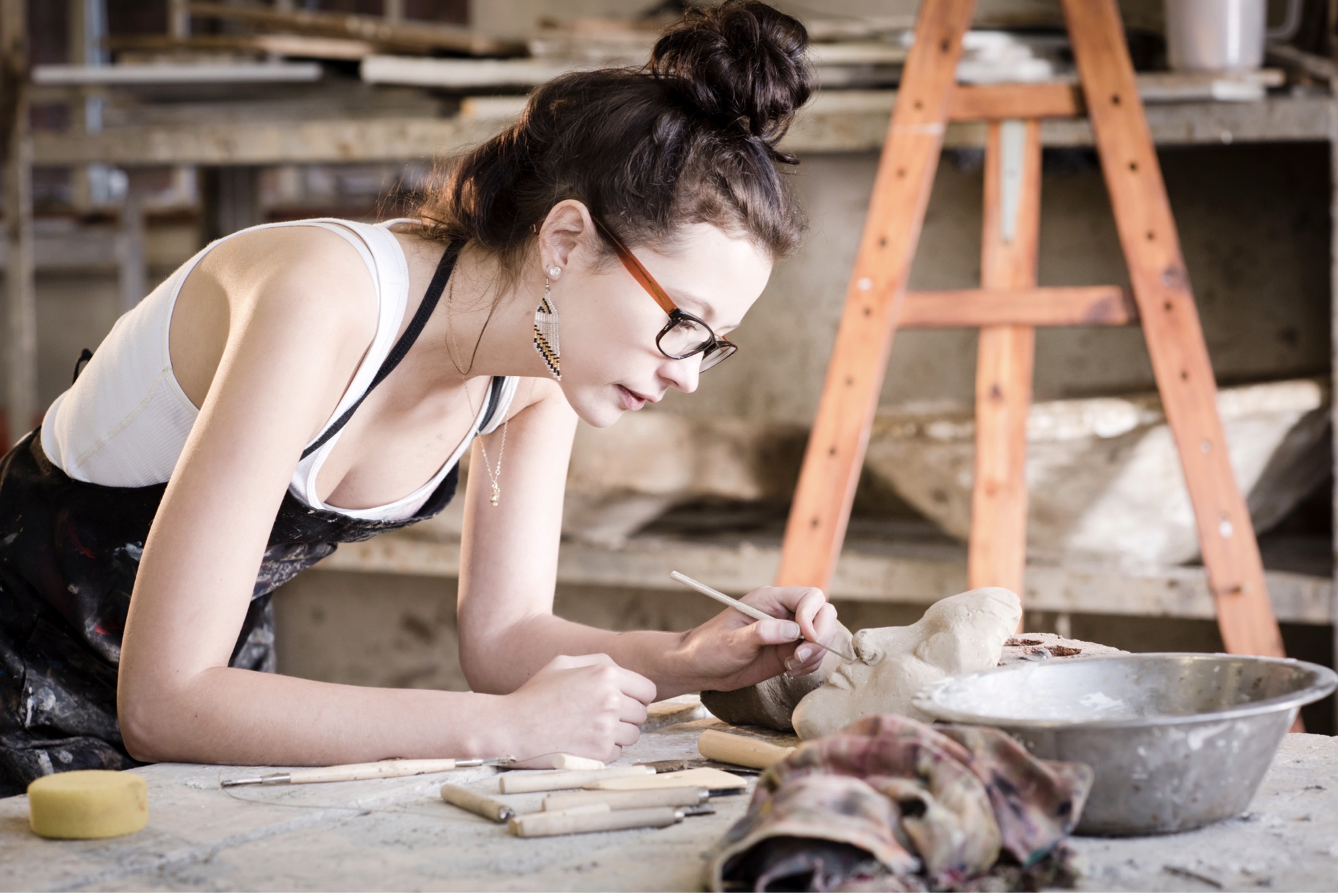
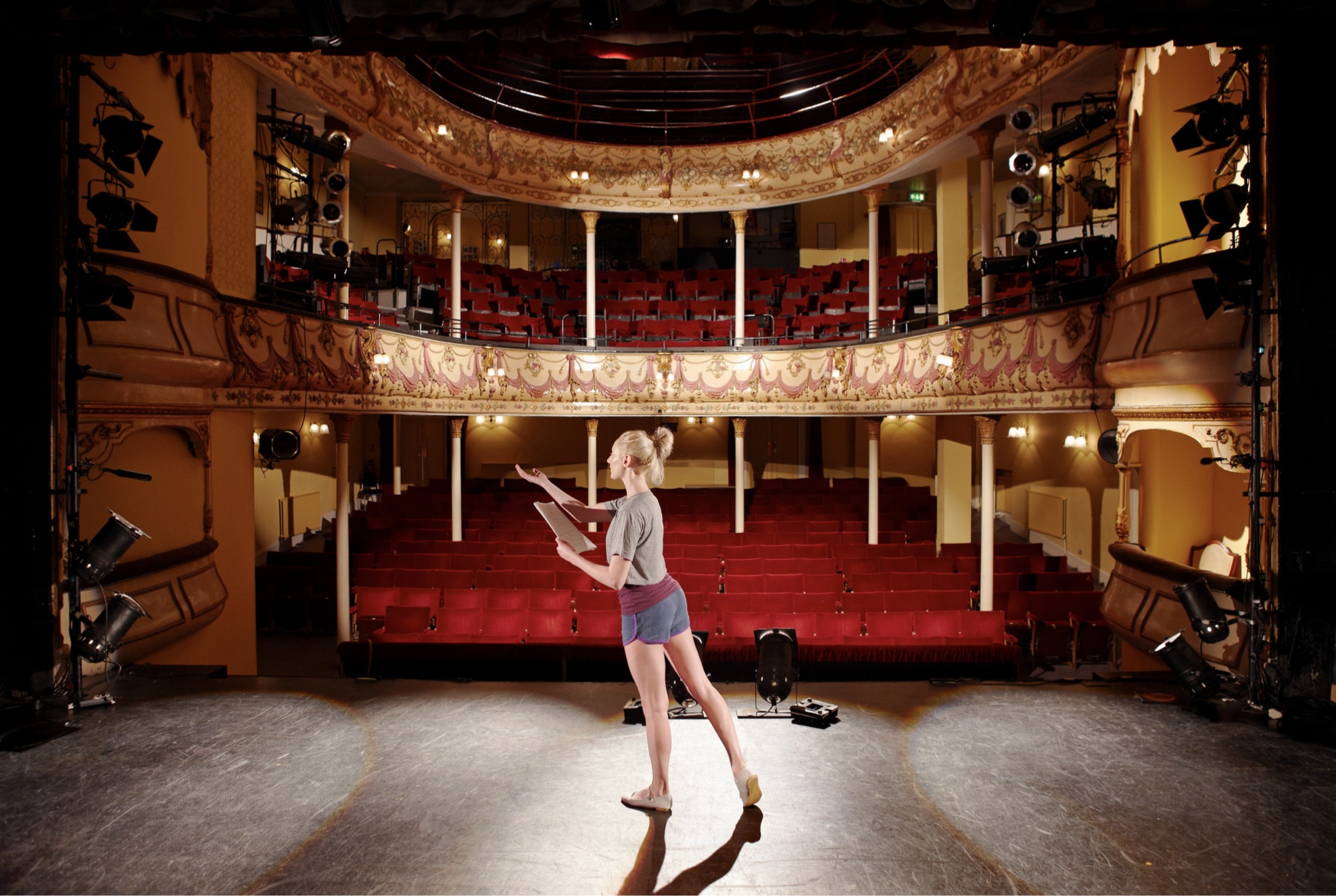

Growing as an artist is directly related to personal development. The more you know who you are and accept who you are the better you are as an artist. Growing my artistry has caused me to look directly at my biggest insecurities and childhood wounds; this has inspired me to actually develop tools to overcome them.
So here is where self love comes into play.
Practicing self love means discovering and accepting all the parts of ourselves, both our gifts and our shortcomings. It means embracing our mistakes and reframing how we see ourselves when we make mistakes. It means looking at the meaning we assign to our mistakes and failures. It means taking care of our bodies and honoring what our bodies need. It means knowing how to caretake your emotions and learning how to process grief. It means understanding the creative process, allowing yourself to rest and celebrate your artistic expression and efforts at the right time.
In my opinion this process works best with support. My vocal performance coach understands this concept very well and gently guides me through it. So do my acting and life coaches, and I can confidently say that having so much support has allowed me to grow my artistry in ways I never imagined I could. I highly recommend you look into the book The Artist’s Way by Julie Cameron, there you’ll find incredible wisdom and methods for unleashing your inner artist and creativity. You can even get a group of like minded people together to go through the book with you and create a community of support.
You’ll find that ultimately, everyone has an inner critic. Everyone has insecurities surrounding their artistry, even those who we’ve labeled as the most successful in their industry. It’s all part of the process. I simply want you to understand that you don’t have to let your inner critic block you from expressing your art form and enjoying the journey.
Communicating with your inner critic

If you’re still reading by now then that means you really want to know how to manage your inner critic! I’m glad you’ve gotten this far because now I’m going to share with you the method I use to communicate with my inner critic.
I like to think of my inner critic as the know-it-all child I once was who parroted everything my father said. First, I get used to recognizing when her voice shows up. I’ll notice thoughts like “I’ll never get this right” or “I’m not slim enough” or “I’m not young enough to be succesful in this industry” or “My voice doesn’t sound as good as___.”
These thoughts always come accompanied with icky feelings, and the more I focus on the thoughts and allow myself to believe them the worse I feel. So, back to what to do when I recognize the voice of the inner critic. I don’t yell at her or tell her off or speak abusively to her, but rather I remind myself that she is just a child with a limited perspective on life. I respectfully thank her for her opinion, then explain to her why I am going to look at a different perspective.
I’ll imagine I’m reparenting that child, teaching her that there is another way to look at the situation, and why I prefer to look at it that way. It is then that I, the loving adult, will choose one thought after another that feels better to think.
For example: I sing a song. My inner critic might quickly and loudly show up (usually as a feeling first) but with thoughts like “You don’t sound like the original singer, you don’t even sound that good. You were off key, and your voice falters when you try to hit that note. No one wants to hear you sing if you don’t sound as good as a famous powerhouse diva.” So once I recognize that the inner critic has shown up, I remember that I CAN think different thoughts that feel better. Thoughts like “I’m simply warming up, it’s not meant to sound good yet. I’ve been speaking a lot this week, my voice might be tired. Comparing myself to a vocalist who has made their entire life about their voice is unfair. I love to sing and often sound beautiful, and more importantly it brings me great joy. There is at least one other person in the world positively affected by my singing, and that’s something worth celebrating.” These kinds of thoughts make me feel peace, confidence and ease around something that can easily make me feel frustrated, angry and discouraged.
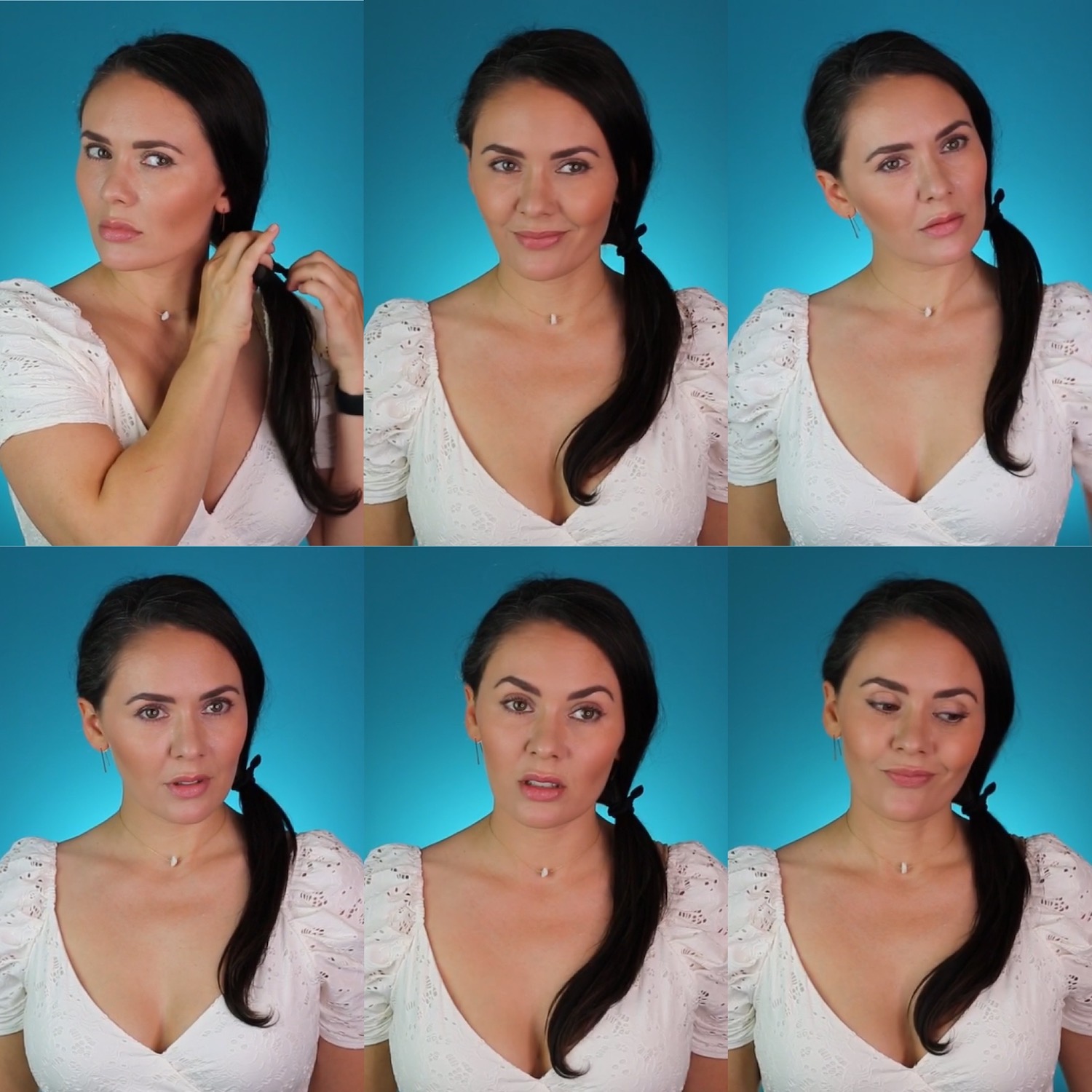
Ok let me explain this seemingly random collage of myself making faces: These depict the phases I go through now when my inner critic shows up; be sure to “read” the photos left to right. To begin, I recognize my inner critic, first with cautious disdain, followed by a confident knowing that I am capable of handling this situation. Then I proceed to be the curious parent, listening to what the inner critic (aka my child self) is saying and perhaps remembering when that perspective first developed. Lastly I think and often say to myself, “You’ve got this. You know how to lovingly handle your inner critic without rejecting a part of yourself. Life is good.”
In conclusion, remember that everyone has an inner critic, unless you were raised by a pack of wolves with no human interaction, maybe that exempts you. So knowing how to manage yours in a healthy and self-loving way is really your best bet in my opinion. Because honestly, your gifts and creative expression are meant to be shared with others, and you were meant to enjoy the journey of doing so as much as possible.
Don’t let your inner critic steal your joy or prevent you from sharing your gifts with the world. And if you do, don’t beat yourself up about it. Now you know it’s possible to start communicating with your inner critic so you can experience more joy. It’s a journey. Start now and keep trying every chance you get. The better it gets, the better it gets.
I wish you love, joy, peace and confidence
in ever increasing waves.
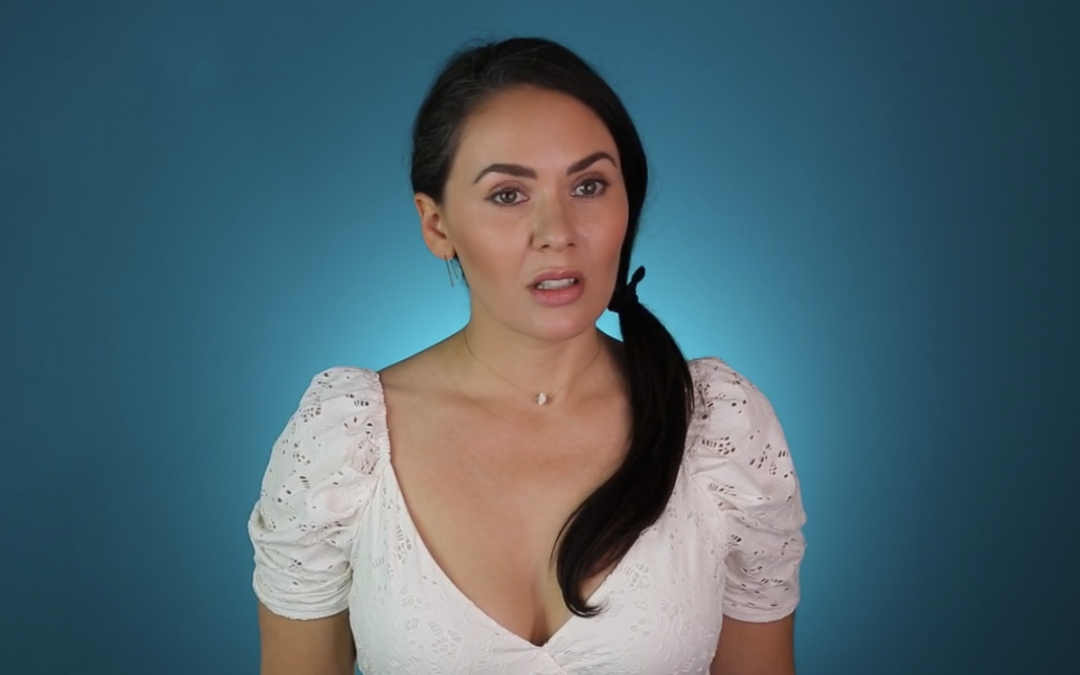
These pro tips were so helpful! I can’t wait to try and apply them. Thanks Jess ❤️
You’re so welcome Lindsey! I’m glad they resonate with you =)
More to come!